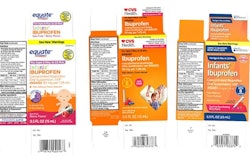
The Lorax Compliance COO addressed the issue Feb. 6 at Pharmapack, saying that businesses in this sector may not be aware of the full extent of environmental Extended Producer Responsibility (EPR) legislation and the changes that will be implemented from the E.U.’s Circular Economy package.
“The pharmaceutical industry has many regulatory hoops to jump through, so it’s perhaps understandable that environmental reporting has been as less of a priority,” said Carvell. “Nevertheless, many pharmaceutical companies are highly globalized and export and import into numerous markets. As more E.U. countries focus on improving their packaging collection, sorting and separating capabilities, this industry, like many others, will need to prepare for these changes and consider how they will impact their operations.”
Carvell explained the recent legislation changes in both the E.U. and internationally, including Germany’s VerpackG scheme, which requires businesses to register to a dual reporting system, and carries a maximum fine of €200,000 for non-compliance.
“The industry should expect further reforms over the next two years in line with the E.U.’s 2018 Circular Economy package,” she said. “Planning for these changes is not something to leave until the last minute. The VerpackG scheme, for example, caught many businesses unawares when it was implemented January 1, 2019. A number of other EPR programs are changing and if businesses that are unable to source the necessary data they will automatically be subject to higher default fees.”
Read the following exclusive reports from Pharmapack 2019:
• Case Study: The Emotional Side of Pediatric Infusion
• New Pharmapack Awards Include Patient-Centric and Eco Designs





















